How to Maximise Your NHS GP Appointment
Every Minute Matters: Make Your GP Appointment Count


How to Maximise Your NHS GP Appointment
Emma arrived at 9:03 am for her 10‑minute GP slot, armed with a brief symptom diary and morning peak‑flow readings. She led with her chest tightness—worsened by stress and sleepless nights—and quickly added a question about her stubborn backache. With minutes to spare, Dr. Malik reviewed her inhaler, prescribed gentle stretches via physiotherapy, and recommended a mindfulness app for better sleep. As Emma left, she’d received a tailored blend of medical advice and holistic self‑care, and a promise of a longer follow‑up — all within a tightly packed schedule.
Navigating an NHS GP appointment can feel like a race against the clock. With most practices allocating around 10 minutes per face‑to‑face slot (sometimes lesser) — the de facto standard across the UK, every second is crucial. Yet health is more than a checklist of symptoms: a truly holistic approach considers physical, emotional, and social factors. Here’s how to blend both needs, maximising your appointment and honouring your whole‑person wellbeing.
1. Prepare Before You Book
Define Your Main Concern: Identify one primary issue you want to discuss. Trying to cover too many topics can mean none get addressed fully. If you have multiple health queries, consider separate appointments — telephone or e‑consults can be used for minor issues.
Gather Your Facts
Symptoms diary: Note onset, frequency, triggers, and severity of any symptoms over the past days or weeks.
Medication list: Include dosages, frequency, and any over‑the‑counter remedies or supplements you’re taking.
Relevant history: Past diagnoses, surgeries, or family history that relates to your current concern.
Use the NHS App or Online Booking: Many practices allow you to book slots, view availability, and sometimes submit a brief reason for your visit. Doing so can help the receptionist direct you to the most appropriate clinician (e.g., practice nurse, pharmacist, or GP).
2. Organise Your Questions
Write down your top 3–5 questions or goals for the appointment. Examples:
What could be causing my persistent headaches?
Can we review whether my blood pressure medication is still right for me?
What follow‑up tests do I need, if any?
Having concise bullet points ensures nothing important slips through the cracks, and it’ll keep your discussion focused.
3. Arrive Prepared
Get There Early: Aim to arrive 5–10 minutes before to check in, fill out any forms, and compose yourself.
Bring Essentials
Photo ID (some surgeries require this)
A printed or digital copy of your symptom diary and question list
List of all current medications
Contact details for any carers or family who need to be informed
4. Make the Most of Your Time
During the Consultation
Lead with Your Priority - Start by stating your main concern. For instance: “Doctor, I’m here primarily about my recent breathlessness when climbing stairs.”
Be Honest & Specific - Describe exactly what you feel, when it happens, and any home remedies you’ve tried.
Ask for Clarification - If the GP uses medical jargon, don’t hesitate to say: “Could you explain that in simpler terms?”
Explore Options - Ask about:
Non‑drug approaches (e.g., lifestyle changes, physiotherapy)
Medication side effects and alternatives
Referral criteria for specialists or scans
Request a Plan - Before you leave, ensure you know:
Next steps (tests, referrals)
Monitoring (e.g., “I’ll recheck my peak flow twice daily and call if it drops below …”)
Timeline for review or follow‑up
5. After Your Appointment
Summarise Key Points: Right after you leave, jot down: prescriptions, lifestyle advice, test dates, and follow‑up arrangements. This helps avoid forgetting critical instructions.
Follow Through
Arrange blood tests, imaging, or specialist referrals as instructed.
Pick up and take medicines as prescribed.
Keep monitoring symptoms using your diary.
Book a Review: If your issue isn’t resolved in the timescale discussed, use the NHS App or call the surgery to secure a follow‑up appointment early.
6. Extra Tips for Success
Use E‑Consults for Minor Issues - Questions about repeat prescriptions, minor rashes, or simple advice can often be handled by an online form or nurse triage.
Bring Support if Needed - A friend or family member can help you remember details, especially if you’re feeling unwell or anxious.
Be Respectful of Time - Aim to stay within your appointment slot. If you suspect you need double time (e.g., multiple complex problems), ask at booking for a longer consultation.
Leverage Digital Tools - The NHS App now lets you view test results, messages and even send secure responses.
A little organisation goes a long way. By preparing in advance, focusing your questions, and following up diligently, you’ll maximise the value of every NHS GP appointment. You’ll walk away with clear guidance, a concrete plan, and greater confidence in managing your health. Good luck—and here’s to your next successful visit!
Professional GP advice, anytime, anywhere


